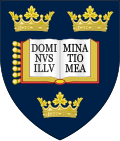References
- ↑ "Walton John - Social History and Contemporary Basque Country Politics Research Group - UPV/EHU". Ehu.eus. Retrieved 2015-11-24.
- ↑ "February 2012: John K. Walton". Britishscholar.org. 2012-02-29. Archived from the original on 2013-11-10. Retrieved 2015-11-24.
- ↑ "Chetham Society: Officers and Council" (PDF). Chetham Society. 2015-11-04. Archived from the original (PDF) on 2015-11-17. Retrieved 2015-11-04.
| Professional and academic associations | ||
|---|---|---|
| Preceded by Creation | Editor of the Chetham Society 1991–2004 | Succeeded by Timothy J. Thornton |
| Colleges | ||
|---|---|---|
| People |
| |
| Buildings | ||
| Departments | ||
| Student life | ||
| Symbols | ||
| International | |
|---|---|
| National | |
| Academics | |
| People | |
| Other | |
| | This article about an educator is a stub. You can help Wikipedia by expanding it. |

